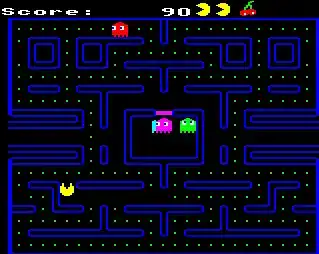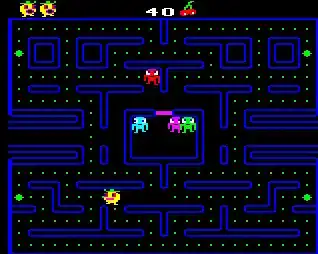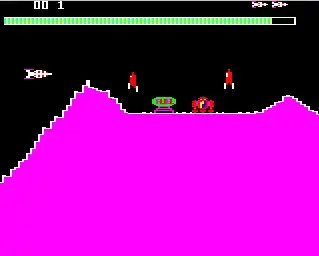beebgames.com
Last Updated 12th May 2024
The BBC Games Archive - digital memories
beebgames.com
Interview With Jonathan Griffiths
In the world of BBC Games, there were relatively few true 'hit' games, most enthusiasts would give you Elite or the Repton games as being the best games, but nearly everyone will tell you that if there is one thing that they remember about Acornsoft is the near-perfect arcade 'conversions' that they packed out with seemingly great ease. I have managed to ask the author of two of the most fondly remembered conversions, Snapper and Rocket Raid, about his involvement with the BBC.
1. How did you get into programming games on the BBC?

I wrote games while at school in the 6th form (rather than revising for my A-levels). The result was three very poor exam results and some demo Acorn Atom games, which I sent David Johnson-Davies at the newly-formed Acornsoft. Luckily he liked them enough to offer me a job, at £3,500 per annum.
2. Would you say you had an advantage when programming for Acornsoft because of the technical information they had on the BBC?
Yes, definitely. I could ask any of the Acorn people about technical issues and always get an answer.
3. When you worked for Acornsoft, what was the mood of the company like at the time?
Very buoyant. We felt like we were the de facto standard for BBC micro games.
4. How would you say the BBC compares to the Archimedes in terms of styles of programming, and also ease of programming?
Really quite similar. Both had BBC Basic with it's built-in assembler, which was all I really ever used.
5. What was your overall feel of the BBC games market at the time your wrote Snapper and Rocket Raid - did you feel it was flooded, or with hindsight that it had less software, but overall more quality?

It certainly didn't seem flooded! The non-Acornsoft games at the time were really fairly poor, often written in BASIC rather than assembler, but the other games houses soon caught up...
6. How has your experience with the Acorn BBC hardware influenced your attitudes and influences with your later work?
The OS was one of the neatest pieces of software around, and that still pervades some of my thinking on small, powerful machines.
7. Were you surprised that Snapper became such a big hit - and just why was the character changed from the early PacMan one?

Yes, I was. It took about 4 months to write, yet people still know of it. The snapper character was changed (along with the ghosts) to give a more distinctively "Acornsoft" (read non-Atari) feel to the game. The second edition also had some bugs cleared up.
Of course, there are still a few left in, because I didn't know about them. Do you know about the white ghost bug? Eat a power pill, then chase ghosts and eat them, sending their eyes back to the central cave. If you can then eat these eyes, they re-emerge as white ghosts, which can be eaten again.
8. Do you have any regrets about any of your Acorn BBC related projects? If so, what?
JCB Digger in hindsight should have been better. By which I mean that the scrolling, especially the vertical, should have been smoother. Neil Raine, amongst others, showed the way to re-program the 6845 so that it had only 4-pixel deep line, which would have made all the difference. Apart from that, I have no regrets.
9. Do you still own/play on any of the old Acorn 8-bit range?
Nope. I gave away both my old Beeb and then my Archi to local schools.
10. What projects are you currently working on, and what would you most like to be involved with in future?
I'm currently working for a small Cambridge computer company specialising in niche modular computers. Great fun, as I'm back writing in 6800 assembler!
I'd like to thank Jonathan for that insight into the world of Acornsoft and into the mind of a very decent programmer.
(C)2024 C. Boylan